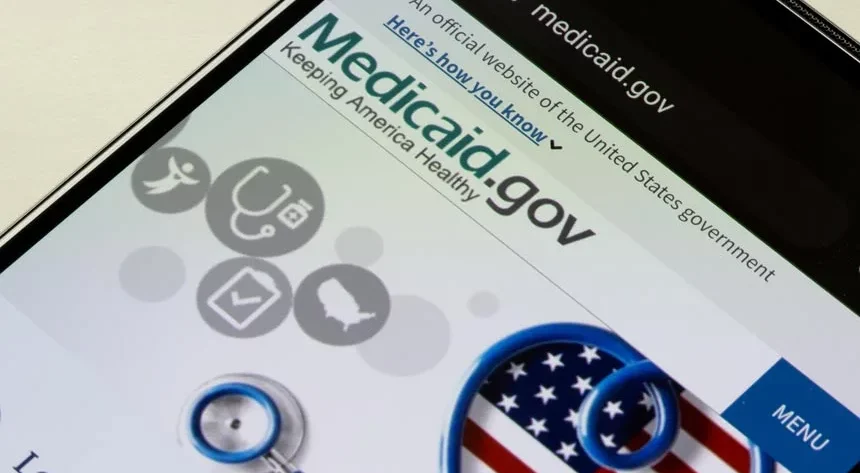What Is A Dual Diagnosis?
Table of Contents
Before getting into what dual diagnosis treatment is, it is important to first understand mental health and dual diagnosis. A dual diagnosis within an individual can be seen as a substance abuse problem and a mental health disorder.
Individuals struggling with substance abuse may have a substance use disorder (SUD). A substance use disorder is a type of mental disorder that causes individuals to struggle with controlling substance use. For those in the Bay State or surrounding states in New England, finding dual diagnosis treatment centers in MA can make all the difference!
An individual suffering from a substance use disorder may have another mental disorder alongside it. The other disorder, aside from the substance use disorder, can be called a co-occurring disorder.
Substance use disorders and co-occurring disorders are the core aspects of what make up dual diagnosis. Keep reading to learn more about the details of what dual diagnosis is and how it is treated!
What Are Mental Health Disorders?

Just as our body’s physical health is of great importance, our mental health is similarly important as well. Unfortunately, education around mental health in our society is very limited and poor in understanding.
A mental health disorder, mental illness, and mental condition are all different terms that make up the same type of psychiatric condition. The traditional, stigmatized view of these issues named these psychiatric conditions ‘mental illness.’
As time went on and understanding of this topic improved, these psychiatric conditions are now more commonly understood as mental health disorders rather than mental illnesses. Despite this improvement, the stigma is still very present.
Individuals struggling with mental health issues are often overlooked and mistreated in their experience. A mental health disorder is a type of psychiatric condition in which an individual’s thoughts, feelings, behavior, mood, and perception are affected.
There are many different kinds of disorders that strongly affect individuals and bring them to have to properly manage their sufferings. Some of the common mental disorders include:
- Bipolar disorder
- Post-traumatic stress disorder
- Eating disorders
- Anxiety disorders
- Depression, or mood disorders
- Personality disorders
How Does Someone Develop A Mental Disorder?
It is highly unlikely for an individual to suddenly develop a mental disorder. A mental disorder is not something that someone chooses nor is it a cause of laziness or weakness. There are many different factors that can lead to the development of mental health disorders within an individual.
Some of the ways in which someone may develop a mental disorder include:
- Family history or genetics
- Brain injury
- Alcohol or substance use
- Traumatic life experiences
- A mother’s exposure to harmful toxins or chemicals during pregnancy
How Is Addiction And Mental Health Related?
Addiction and mental health go hand in hand. Just as mental health issues can lead an individual to substance abuse and addiction, addiction can lead to the worsening of mental health issues.
As Individuals struggling with mental health disorders typically have a lowered quality of life, they are more likely to become addicted to a substance as a way to cope with their daily experiences.
While some of the methods of managing this experience can be beneficial, the developed methods can also be harmful. An individual may begin relying upon substances as a way of relief and managing their experience.
Individuals self-medicating with substances can lead to substance abuse and addiction. Self-medicating is when an individual chooses medications for themselves without the advice of a doctor or medical professional.
This does not mean every individual struggling with mental health will become addicted nor does it mean that every individual struggling with addiction has an underlying mental health issue.
Mental health and addiction are both complex issues and typically do not have a singular cause for developing within an individual. They are both factors that can lead to or worsen one another.
What Are The Signs Of Mental Health Disorders?

While every individual manages different parts of their mental health daily, individuals with mental health conditions have a lower quality of life through their daily experiences. Living undiagnosed can lead an individual to struggle through their experience.
Some of the signs and symptoms of an individual struggling with an underlying mental health disorder can include:
- Significant changes in mood
- Confusion or disorientation
- Chronic sadness
- Excessive fatigue
- Constant changes in eating schedule
- Excessive fear and worry
- Extreme guilt
- Difficulties in everyday activities
Who Can Give Me A Proper Mental Health Diagnosis?
Mental health disorders can greatly alter an individual’s experience and lower their quality of daily life. They can struggle greatly in trying to manage their experience on their own. It is important to receive a proper diagnosis and treatment for disorders an individual may have.
A mental health professional, such as a psychiatrist, can give a proper mental health evaluation to properly determine a mental condition within an individual. This can entail multiple different forms of tests to accurately determine a diagnosis.
What Is Dual Diagnosis Treatment?
Dual diagnosis treatment is a treatment plan in which both or all conditions that are within an individual are addressed and treated. It is very difficult for an individual struggling through unresolved issues to maintain recovery and abstinence from substance abuse.
Addressing all the needs and conditions of an individual is important to allow them to properly recover and return to their lives. Dual diagnosis treatment provides individuals with proper coping mechanisms and methods to manage their daily experiences.
An individual can have multiple co-occurring disorders present at the same time which makes it increasingly difficult to recover to manage. It is important that all co-occurring disorders are addressed within an individual to properly assist them through recovery.
Every person has a treatment that suits them better than other treatments. There isn’t a singular plan that fits every individual. Each individual has their own treatment plan that provides them with the best recovery process.
What Does Dual Diagnosis Treatment Look Like?

There is no one type of treatment style for everyone however, dual diagnosis treatment focuses on addressing every need of an individual. Specifically, dual diagnosis is a form of mental health treatment that assists with the specific needs of struggling individuals.
Treating co-occurring disorders is a core part of a dual diagnosis treatment program. Many of the mental health symptoms can be unbearable to withstand without treatment. This is one of the reasons individuals lean on substance use as a method of coping with their experiences.
The treatment providers at a dual diagnosis recovery center assist individuals with individualized treatment planning to make a proper treatment plan. These many different treatment services can include:
- Medication therapy
- Behavioral therapy
- Support groups
- Mental health treatment
- Education on substance abuse
- Relapse prevention skills
- Equine therapy
- Stress management
- Healthy coping skills
- Family therapy
- Group therapy
A dual diagnosis treatment program may also include medication management, handled by medical staff on-site. Medications may be available as a method of assisting individuals through their mental conditions or withdrawals.
Medical detox is usually the starting place for all drug and alcohol addiction treatment. This allows an individual to return to normal bodily functions and proceed with a treatment plan at a dedicated treatment center.
Inpatient Treatment At A Dual Diagnosis Rehab
Inpatient treatment is a form of on-site 24-hour treatment in which an individual lives at a treatment center for dual diagnosis treatment. This treatment option can be very beneficial for individuals who want to be removed from their environment.
Inpatient treatments are often long-term forms of care that allow individuals to rebuild their social skills and maintain stable environments. A stable environment, relationships, and activities are core parts of a successful substance abuse treatment.
Outpatient Treatment For Co-Occurring Conditions

Outpatient treatment is a form of treatment that provides treatment during the day and allows individuals to return home during the night. The treatment types available vary in their levels of intensity.
This can provide proper flexibility for individuals with other outside responsibilities such as work or school. It is important for all individuals to have access to treatment that allows them to continue how they need to.
Group therapy is a primary form of outpatient treatment. Support groups such as Alcoholics Anonymous allow individuals struggling with drug addiction to speak with others in similar situations and better their own addiction recovery.
Medical Detox Before Dual Diagnosis Treatment
Medical detox is a form of inpatient or residential treatment in which an individual can receive 24-hour care from medical staff. This treatment program works as a medically supervised drug detoxification program.
Individuals are able to safely manage their withdrawals in this program. Addiction withdrawals can be relapse-provoking and even potentially dangerous for individuals. The medical supervision on-site brings comfort to individuals suffering from withdrawals.
The unwanted side effects and withdrawals from substance abuse can be relapse provoking and even dangerous, placing individuals in life-threatening situations. An individual’s body may begin to rely upon substances for proper function.
Removing the substance can lead to body dysfunction and cause an individual to experience serious health issues. Medications can be a big part of the detoxification process and provide comfort to suffering individuals.
Medications can be provided to individuals to better allow them to maintain and return to proper bodily functions. Some medications may also be provided after detoxification due to co-occurring disorders.
To help maintain the symptoms of the other mental conditions, an individual may be prescribed or given medication to manage those symptoms and their experience.
Partial Hospitalization Programs or PHPs
Partial hospitalization programs are a form of intensive outpatient treatment medical detoxes. This detox is similar to medical detox and is used to help individuals with moderate or mild withdrawal symptoms cleanse their bodies of substances.
This detox is called ambulatory detoxification and it provides individuals with more flexibility in their treatment. Individuals do not live on-site during this form of treatment and are able to return home at night.
Medical staff are typically able to be contacted by the individual or close members of the individual for immediate or necessary medical attention or advice. These precautions are set in place to properly provide an individual with what they need.
Gradually as symptoms improve, an individual requires less care and is able to transition into substance abuse treatment.
Paying For Dual Diagnosis Treatment In MA

The cost of receiving treatment may cause individuals to deny or reject the treatment they are in need of. Mental and behavioral health services are essential parts of an insurance plan and although the amount of coverage varies from plan to plan, it is an essential part.
Some of the commonly accepted insurances within dual diagnosis treatment centers in MA include:
- Medicare
- Medicaid
- Aetna
- Cigna
- UnitedHealthcare
- Humana
- Blue Cross/Blue Shield
- Masshealth
Another option that may be available is called sliding fee scale therapy which refers to treatment that is priced based on an individual’s income. His can also help an individual in need of treatment receive treatment.
Finding A Dual Diagnosis Treatment Center In MA
Searching for treatment is a difficult process to take on alone. It can be overwhelming to find dual diagnosis treatment centers that suit you. Here at Find Addiction Rehabs, we make that process easy.
Whether finding a treatment center in your location, or connecting you with recovery tools and resources, our hotline is available 24/7 to make sure you can get the help you need, anytime you need it.
Trying to manage mental health on your own can feel like you are battling something you can’t see, especially alongside substance abuse and addiction. Call us today and we will help find the right dual diagnosis treatment center for you or your loved one, quickly and confidentially!
Edward lives and works in South Florida and has been a part of its recovery community for many years. With a B.A. in English Literature from the University of Massachusetts, he works to help Find Addiction Rehabs as both a writer and marketer. Edward loves to share his passion for the field through writing about addiction topics, effective treatment for addiction, and behavioral health as a whole. Alongside personal experience, Edward has deep connections to the mental health treatment industry, having worked as a medical office manager for a psychiatric consortium for many years.

